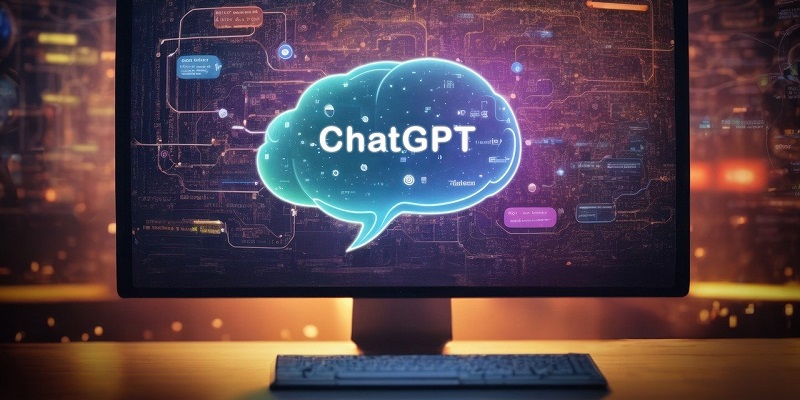OpenAI’s latest offering, ChatGPT Enterprise, is set to revolutionize the way businesses utilize AI-powered chatbots. With a focus on security and privacy, this premium version of ChatGPT aims to meet the demanding needs of enterprise customers. As data security continues to gain prominence, OpenAI recognizes the importance of providing robust measures to safeguard sensitive information.
ChatGPT Enterprise
ChatGPT Enterprise is equipped with “enterprise-grade” security measures, ensuring that businesses’ confidential data remains secure. This includes encryption, strict access controls, and comprehensive audit trails to monitor and track user interactions. With enhanced privacy protections, OpenAI aims to instill confidence in its business customers and their clients, assuring them that their sensitive information is in safe hands.
Powering ChatGPT Enterprise
At the heart of ChatGPT Enterprise lies GPT-4, OpenAI’s most advanced and highest-performing model to date. Leveraging the power of GPT-4, businesses can expect even more accurate and contextually aware responses from the chatbot. This improvement in performance translates to enhanced customer experiences, streamlined workflows, and increased overall productivity.
Early adopters of ChatGPT Enterprise
Leading companies such as Carlyle, The Estée Lauder Companies, and PwC have been quick to realize the potential of ChatGPT Enterprise and have embraced its innovative capabilities. These early adopters recognize the value of AI-driven chatbots in addressing customer queries, providing personalized recommendations, and assisting with various business tasks. Their decision to adopt ChatGPT Enterprise reflects the growing trend of integrating AI solutions into business strategies.
Declining ChatGPT Traffic
Although ChatGPT has gained substantial popularity, there has been a noticeable drop in its traffic during June and July. While the exact reasons behind this decline remain unclear, experts speculate various possibilities. It could be attributed to the initial novelty wearing off or users migrating to alternative chatbot platforms. OpenAI is actively investigating this trend to ensure user satisfaction and address any potential concerns.
User demographics of ChatGPT
According to Similarweb estimates, a significant portion of ChatGPT’s user base, approximately one-quarter, falls within the 18-24 age group. This demographic’s affinity for AI-driven technologies highlights the increasingly tech-savvy nature of younger generations. The engagement of these younger users signifies the potential impact of AI chatbots on future consumer behaviors and preferences.
Pushback from publishers and platforms
OpenAI faces resistance from news publishers and other platforms that are blocking its web crawlers from mining data for AI model training. This pushback stems from concerns over intellectual property rights and the potential misuse of published content. OpenAI acknowledges the need for ethical data acquisition practices and is working towards addressing these concerns responsibly.
Concerns and regulations
A recent survey revealed that two-thirds of US-based respondents who were aware of ChatGPT expressed concerns about government regulations surrounding its use. These respondents fear that the government may not go far enough in regulating AI chatbot technology, potentially leading to ethical and privacy issues. Striking the right balance between innovation and regulation is a crucial aspect that OpenAI and policymakers must collaborate on to ensure responsible AI deployment.
Increased use of ChatGPT for learning and work
The adoption of ChatGPT for learning and work tasks has experienced steady growth, with usage increasing from 12 percent in March to 16 percent in July. This shift signifies the expanding acknowledgement of AI chatbots as valuable tools for educational purposes and workplace productivity enhancement. ChatGPT’s ability to provide instant access to information, tutorials, and assistance has become a valuable resource for individuals and companies alike.
Public perception of artificial intelligence
Surveys indicate that 52 percent of Americans feel more concerned than excited about the increased use of artificial intelligence. This sentiment underscores the need for transparent and accountable AI deployment. OpenAI recognizes the importance of addressing these concerns through proactive communication, collaboration with policymakers, and responsible development practices.
ChatGPT Enterprise signifies OpenAI’s commitment to delivering an enterprise-level chatbot solution with robust security and privacy features. Powered by GPT-4, this premium version empowers businesses to streamline operations, enhance customer experiences, and increase productivity. As OpenAI navigates the evolving landscape of AI, it remains dedicated to addressing concerns, embracing responsible AI development, and fostering public trust in the transformative potential of artificial intelligence.

